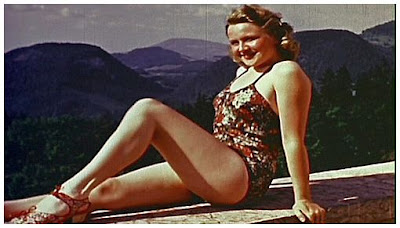I arrive in London to spend Christmas with the noble Dr Whipsnade, benefactor of the worthy, guardian of the innocent and chastiser of the villainous. After taking supper with the doctor and his wife, I step outside to watch a band of humans singing Christian hymns. Their voices are earnest and tuneful, although rather affected for my taste. We gorillas prefer a more robust style of vocal expression that reaches the pelvis as well as the ear drums. This does not stop me from applauding their performance:
“Bravo!” I cry. “Wait here while I go inside to get something for you!”
I brush past the butler when he opens the door and return with a couple of crisp banknotes in my paw. I am about to hand them over when Dr Whipsnade emerges in his overcoat and grabs my forearm.
“Don’t do that, Bananas, they’re not licensed to collect for charity,” he says. “Jevons will bring them some mulled wine.”
The choir look disappointed. “We wouldn’t have minded a tip,” mutters one of them as I re-enter the mansion with cash in hand.
This incident illustrates one of the enduring features of an English Christmas: it’s the time of year when money is at the forefront of people’s minds. The first man who properly understood this was Charles Dickens, whose work is much celebrated in the festive season. A Christmas Carol, let no one forget, is a parable about a miser. I’ve seen it enacted so many times that I now hold revisionist views on it.
The story, you see, has a glaring moral defect: Scrooge was scared into turning over a new leaf by ghosts. The use of terror tactics to make a sinner repent is not the Christmas spirit. It seems obvious to me that what the old codger really needed was a woman. Instead of harassing him with spectres, Dickens should have given Nancy from Oliver Twist a supporting role as the Wench from Novels Past. If she had snuck into Scrooge’s bed at midnight, straddling him between her broad and luscious thighs, he would have definitely been a new man in the morning.
A consistent theme in all of Dickens’ work is that sex makes humans happy. Why else would Bob Cratchit be in such good cheer, in spite of all his woes? The size of his family suggests that servicing the missus was one of his favourite pastimes. The same is true of Dickens’ female characters. David Copperfield’s pretty young wife died with a smile on her face, which women don’t make a habit of doing unless they’ve been given a good seeing to. And no one was more miserable than Miss Havisham, the bitter old prune who renounced men after getting jilted on her wedding day.
After retiring to my bedroom, I look out of the window at the grand houses in this affluent neighbourhood of London, and wonder how much shagging is going on. Not much, judging by the long faces I saw moping around in the morning. I blame Dickens. People are so preoccupied with money and presents that their libidos have turned Scrooge-like. They ought to remember the event that Christmas celebrates: the first and only time that God had sex with a woman.
Gorilla Bananas wishes his readers a Merry Christmas.
You have read this article Carol singers /
Christmas shagging /
Dickens /
money /
Scrooge
with the title 2011. You can bookmark this page URL https://celebrityapprenticey.blogspot.com/2011/12/christmas-carols.html. Thanks!











































